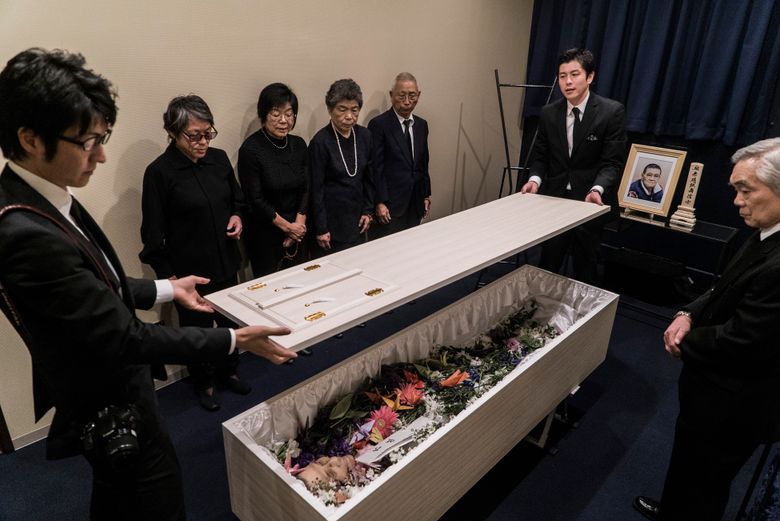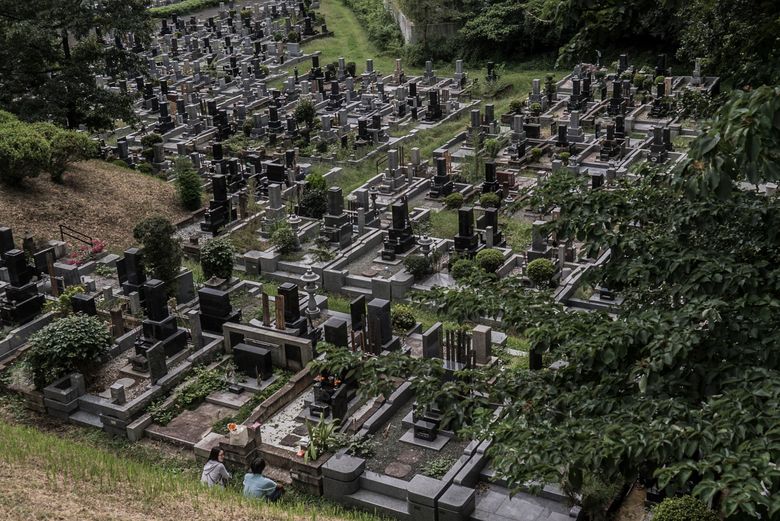Tight Little Island(s)
"Japanese funerals were based on showing off to other people, and people cared how they were viewed by others."
"But fewer and fewer people talk to their neighbours, so they don't have to show off or think about how they are viewed by them."
Midori Kotani, executive researcher, Daiichi Life Research Institute
 |
Japan is the quintessential society or orderly politeness and cohesion, and its people take care never to seem to be different, because homogeneity is of supreme importance to the culture that values harmony, neatness, orderliness and good behaviour. But above all, being Japanese. After all, the islands that comprise Japan accommodate the living needs of 127-million people, living in fairly close proximity to one another in a geography that is mountainous, making for a crowded urban environment in its cities.
The Japanese are consummate consumers, demanding quality control and excellence, whether it be in the vehicles they produce (and typically discard when several years old for new ones because of 'safety' rules, exporting the old to other Asian nations) or the food they eat both local and imported. They are fastidious people with a genuine love of nature; when exploring the natural landscapes Japanese enjoy dressing for the occasion lederhosen, walking sticks and all.
And they certainly love thematic drama to accommodate their sense of orderliness, along with a social contract that abhors unseemly behaviour bringing public attention to oneself, behaving with public circumspection to a degree not seen elsewhere. The very essence of being Japanese is a state of being to be both cherished and protected; those who exit the country to go abroad temporarily are viewed as less than authentic Japanese on their return.
Japanese in Tokyo typically live in building complexes where apartments are very small, so they do their entertaining at hotels and restaurants. Urban building areas are so tight that amazingly narrow buildings are shoehorned in wherever possible between existing buildings. And because homes are so tight there is little opportunity for a couple to get intimate while courting. Japan looks after that through Love Hotels, temporary and elegant surroundings for a few hours or an evening of togetherness.
There are hotels whose architecture has been designed to appear like a wedding cake. Famously, there are specialized hotels in Japan whose rooms are actually sleeping pods, narrow platforms meant simply for sleep. They are called capsule hotels and resemble what might be sleeping arrangements on a space ship, utilizing all available room in a space-tight environment. In Japan, with its large population and small geography, it makes sense.
Categorization as well as themes also play a significant role in merchandising and marketing, where streets and specific neighbourhoods are dedicated to a single theme. To highlight electronics, or a focus on shoes only, on motorcycles, or on fish so that on that street, shop after shop exclusively features products that fit that specific category. Another quaint and perhaps sensible custom is the featuring of plastic models of the food that can be ordered at restaurants, colourful and obvious, in cafe or shop windows.
The latest, it would seem, is the inauguration of Corpse Hotels, where family and friends are able to grieve for their loved ones who have passed through life and death has embraced them. They are called "itai hoteru". One half of the rooms in the hotel are meant to hold coffins on platforms built into the room alongside small altars. Some of the coffins come with transparent lids to aid the mourners' view of the departed. The other rooms are meant for mourners to stay over.
 |
Instead of the large funerals that were once traditional, these "itai hoteru" are being popularized. In 2015 alone, 1.3 million people died in Japan, representing an increase of 35 percent from 2001, and increasing. The death rate is expected to peak in 2040 at 1.7 million people expiring. Last year, 37 percent of Japanese women were over 90 when they died, with few to mourn them. Almost one-fifth of Japanese men never marry or have children, so there are few relatives.
In Tokyo, with its population of 13 million people, there are 25 crematoriums even though there are 5,100 crematoria throughout the entire country.The number of people over age 65 who died alone at home in Tokyo doubled between 2003 and 2015. The appearance and usefulness of Corpse Hotels reflect a solution to a social conundrum for a practical people.
Labels: Customs, Human Relations, Japan, Social Welfare, Society
0 Comments:
Post a Comment
<< Home